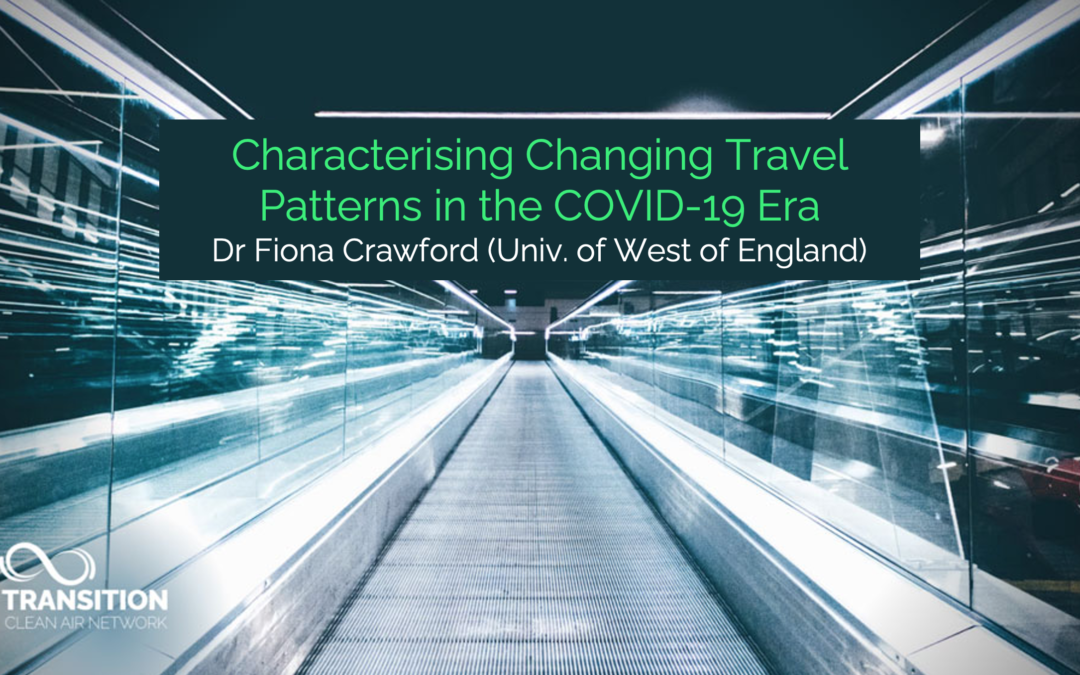Mid-term Summit showcasing TRANSITION-funded Clean Air Discovery & Innovation projects:
-
Measuring Exposure in Different Transport Modes | Nick Molden (Emissions Analytics Ltd)
-
Characterising Changing Travel Patterns in the COVID-19 Era | Dr Fiona Crawford (University of the West of England)
-
Progressing Real-Time Source Identification | Gordon Allison (DustScan Ltd)
-
Minimising Public Exposure at the Roadside | Dr Fabrizio Bonatesta (Oxford Brookes University)
Characterising Changing Travel Patterns in the COVID-19 Era | Dr Fiona Crawford (University of the West of England)
Applying methods previously used in gene sequencing to number plates and vehicle registration data, Dr Fiona Crawford will generate insights into travel behaviour during the COVID-19 pandemic to provide insights into the air quality impacts of changes in working patterns and shopping behaviour (e.g., increasing home working and home deliveries).
The Covid-19 pandemic has resulted in an unprecedented ‘shock’ to regular traffic levels, in terms of the scale of the drop, the geographic coverage and the longevity of the impacts. Improvements in air quality were observed in many cities during the initial lockdown starting in March 2020, at least in terms of nitrogen oxides (NOx), although traffic emissions rose steadily through the summer of 2020 in most areas. This project seeks to examine travel behaviour during the pandemic to inform policies related to air quality and transport decarbonisation.
During lockdown many people worked exclusively from home and others shifted to often working from home. Although this has resulted in fewer trips on the roads, it is unclear what types of vehicles have stopped making trips. People on higher incomes are more likely to be able to work from home, so is the increase in working from home removing trips by newer, ‘cleaner’ vehicles? The pandemic has also resulted in more online shopping which may reduce personal travel, although it is likely to result in more van trips. By examining behaviour during different stages of the pandemic we will gain valuable information on truly ‘essential’ trips.
Firstly, aggregated data on traffic flows and air quality sensor data in Bristol will be analysed to explore spatial differences in the impact of the pandemic on travel and pollution. The project will then consider how individuals’ behaviour has changed, using Automatic Number Plate Recognition (ANPR) data and the associated vehicle type and emissions data for a sample of vehicles.
The responses of different types of road users will be examined, for example occasional visitors, regular commuters or delivery vans. The project therefore looks beyond the change in traffic volumes to see the changes in individual behaviour and the types of vehicles affected.

